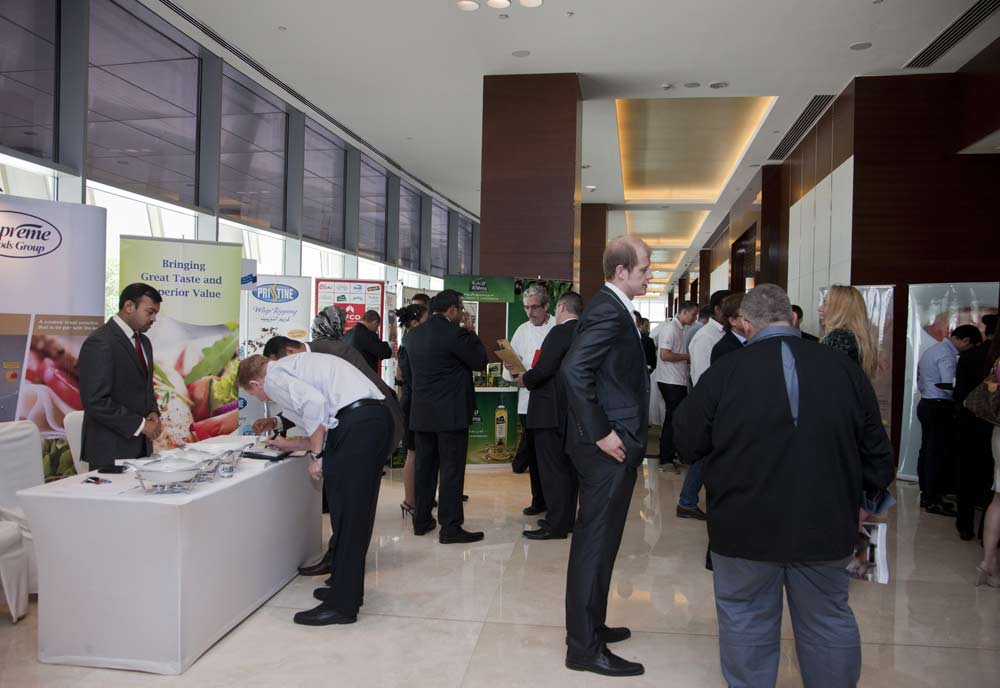The Caterer Middle East Chef & Ingredients Forum is all set to take place on October 8, 2014, at Grosvenor House Dubai and will bring together executive chefs, head chefs, chef de cuisines, pastry chefs, sous chefs, and F&B and culinary directors across the region.
The event’s advisory panel consisted of Jumeirah Hotels & Resorts group culinary director Christian Gradnitzer; The Act Dubai head chef Roberto Segura; Atlantis, The Palm VP — culinary Sascha Triemer; Fairmont Bab Al Bahr executive chef Cladys Magagna; Capital Club Dubai general manager Emma Cullen; Rang Mahal by Atul Kochhar head chef Amrish Sood; and Radisson Blu Dubai Deira Creek director of kitchens and Emirates Culinary Guild president Uwe Micheel.
These industry stalwarts met at Capital Club Dubai to set the agenda, and discussed which issues were needed to keep the conversation going at the conference.

| Advertisement |
FARM TO FORK
One of the topics that dominated a lot of the conversation at the meeting was the issue of farmers and local ingredients. Opinions flew around the room about how this should be tackled.
Gradnitzer said he had made it one of his objectives for this year and the next to think about sustainability in produce, and not just talk about it. He added: “Let’s all sit together and put our quantities together and ask the farmers, can you grow this? I’ve met a lot of companies over the last few years and they try to do it, but have not followed through. But we also haven’t given them the right support.”
Cullen said it would be great for the chefs to interact with “the people on the ground, who will give us a different perspective… the real farmers who can talk about the technical things.”
Sood said this initiative shouldn’t stop at the conference in October. He said: “Chefs also have to go to the farm and try to build a relationship with the farmers.” Micheel pitched in to concur. He said: “Yes I agree 100%; this is step two. We must know what’s available and who is there.” Gradnitzer again stressed the need to understand what the farmers needed as support from the F&B industry, while Triemer said the only concern he has had so far with getting local ingredients is consistency throughout the year.
However, prices were definitely a factor for the chefs to consider. Micheel revealed that a problem most restaurants faced was that when a good supplier is found and many five-star hotels started visiting them, the prices double. He said: “Just because we have local vegetables, we pay double? They also use too much water to grow here, it’s inefficient. We have perfect conditions to make energy, and shouldn’t be wasting water by growing a sub-standard product. How much does it make sense to grow these fruits and vegetables here? Where is the line… how much do we have to push local vegetables?”
Magagna pointed out that an issue was that the hospitality business in the region is growing much faster than local farms. “We are growing at the speed of light. There is not enough supply to go around.”
A suggestion was made by Micheel, whereby suppliers should be informed that when good quality local produce is available, to bring those instead of imported goods. Triemer added that due to the supply issue, all outlets in a hotel may not be able to use the ingredients. He said: “But one or two outlets should focus on it, and be a champion of local ingredients.”
Sood highlighted that the word ‘local’ needs to encompass regional produce, from across the Middle East and Levant. He said chefs need to highlight in their menus and to consumers when they use Omani vegetables for example. Sood explained: “It has to be part of the culture of the chef to respect the local products. Using local supplies shouldn’t be a trend or fashion, but has to be ingrained in the culture of the kitchen.”
Article continued on next page...










 Search our database of more than 2,700 industry companies
Search our database of more than 2,700 industry companies









